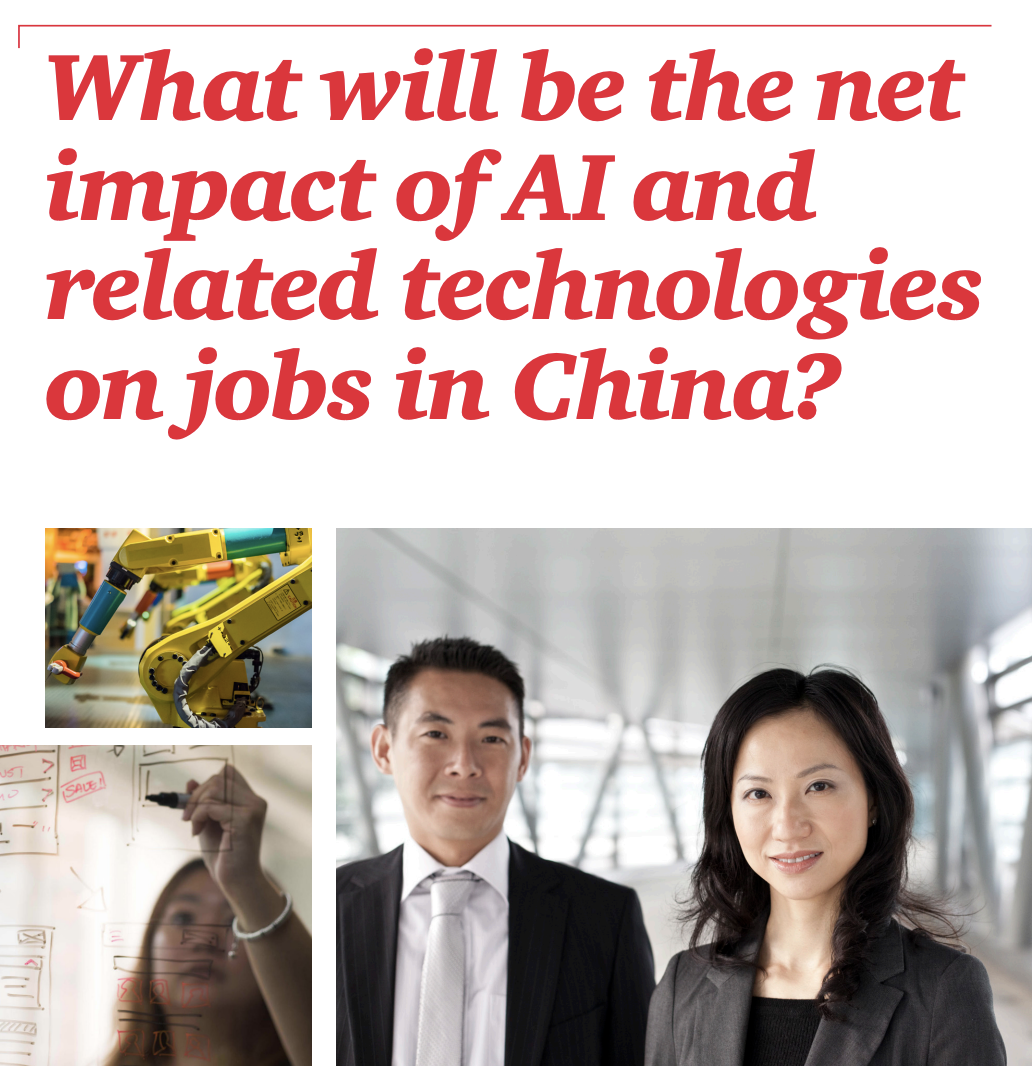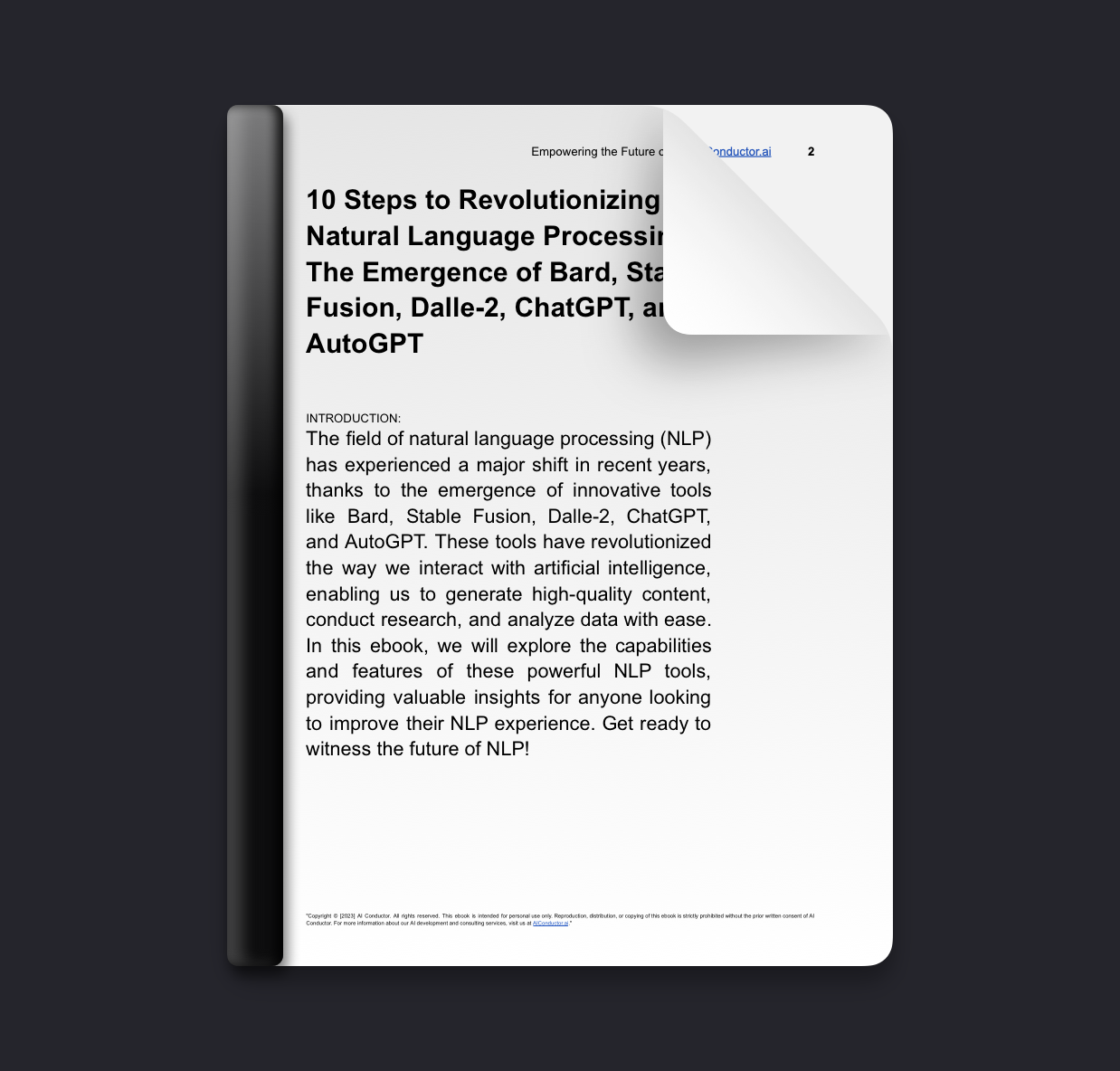We asked:
What will happen to my job if AI takes over half of China's jobs?
The Gist:
This article discusses the potential impact of artificial intelligence (AI) on employment in China. It looks at the findings of a study published in the journal Science Advances, which suggested that almost half of all jobs in China could be replaced by AI by 2030. The article also examines the potential impact of AI on China’s workforce, and explores how people can prepare for the future of work. To gain further insights into the impact of AI on employment, the article uses the AI-powered chatbot “ChatGPT” to ask questions about career advice. ChatGPT’s responses suggest that people should be prepared to adapt to changing job roles and technologies and be open to learning new skills and retraining. The article concludes that AI will have a significant impact on employment in China, and that people should be prepared for the future of work.

What career paths should people in China pursue to stay ahead of the AI revolution?
Decoded:
The rise of the artificial intelligence (AI) age has businesses, governments, individuals, and the wider world questioning the future of work – with forecasted estimates that China alone could see as much as half of its workforce affected. It's a question that has kept many of us up late at night and suddenly, we now have an AI system that could offer advice.
ChatGPT – the world's first open-source AI career advisor – was developed to provide humans with advice about job opportunities. The do-it-yourself AI bot was created by China's Institute of Computing Technology and is currently being used to give practical career-related questions to people seeking work or wanting to switch jobs.
Using Natural language processing to generate realistic conversation with the user, the AI bot is designed to understand the user's own responses, providing answers to questions such as how to prepare for current and prospective job opportunities, while also offering job hunting tips and suggesting career paths.
But what can ChatGPT offer to those worried about the possibility of up to half of job opportunities disappearing, due to the advancement of AI?
Quite a bit, actually. ChatGPT encourages employees to think about their skills in a way that could make them AI-proof. For instance, the ability to think quickly and solve problems in rapidly changing environments is something the AI bot encourages workers to work on. It also promotes the development of creativity and problem-solving, which could be invaluable in a future where AI and robotics are pervasive in the workplace.
Other advice that ChatGPT provides relates to emotional and communication skills. When the AI bot was tested with 60 participants, the results showed that 84% of people rated its advice useful, which indicates a potential role for the bot in the HR realm.
In addition, the AI bot is also helping existing and prospective employees identify digital skills that could make them more competitive, with employees taking away from the ChatGPT sessions a greater understanding of the roles and skills needed to remain in work. A recent study by Letzgoin showed that over 60% of China's employers view chatbots as an efficient way to pre-screen talent, with Soochow University noting that AI-based assessments are already being used by Chinese employers.
It's estimated that by 2025, over 95% of Chinese employees will require some form of technological literacy. In this sense, ChatGPT is becoming a valuable resource for those wanting to prepare psychologically and professionally to meet today's challenges.
So, while it's still not clear what the future of work will look like, a combination of emotional and technical skills, coupled with AI-driven career assessments, could be one of the keys to success – and ChatGPT could be a valuable tool to get us there.
ChatGPT – the world's first open-source AI career advisor – was developed to provide humans with advice about job opportunities. The do-it-yourself AI bot was created by China's Institute of Computing Technology and is currently being used to give practical career-related questions to people seeking work or wanting to switch jobs.
Using Natural language processing to generate realistic conversation with the user, the AI bot is designed to understand the user's own responses, providing answers to questions such as how to prepare for current and prospective job opportunities, while also offering job hunting tips and suggesting career paths.
But what can ChatGPT offer to those worried about the possibility of up to half of job opportunities disappearing, due to the advancement of AI?
Quite a bit, actually. ChatGPT encourages employees to think about their skills in a way that could make them AI-proof. For instance, the ability to think quickly and solve problems in rapidly changing environments is something the AI bot encourages workers to work on. It also promotes the development of creativity and problem-solving, which could be invaluable in a future where AI and robotics are pervasive in the workplace.
Other advice that ChatGPT provides relates to emotional and communication skills. When the AI bot was tested with 60 participants, the results showed that 84% of people rated its advice useful, which indicates a potential role for the bot in the HR realm.
In addition, the AI bot is also helping existing and prospective employees identify digital skills that could make them more competitive, with employees taking away from the ChatGPT sessions a greater understanding of the roles and skills needed to remain in work. A recent study by Letzgoin showed that over 60% of China's employers view chatbots as an efficient way to pre-screen talent, with Soochow University noting that AI-based assessments are already being used by Chinese employers.
It's estimated that by 2025, over 95% of Chinese employees will require some form of technological literacy. In this sense, ChatGPT is becoming a valuable resource for those wanting to prepare psychologically and professionally to meet today's challenges.
So, while it's still not clear what the future of work will look like, a combination of emotional and technical skills, coupled with AI-driven career assessments, could be one of the keys to success – and ChatGPT could be a valuable tool to get us there.

Essential Insights:
Three-Word Highlights
AI, automation, career advice
Winners & Losers:
Pros:
1. AI can help free up people's time, allowing them to focus on more creative and fulfilling tasks.
2. AI can help make businesses more efficient, allowing them to reduce costs and increase profits.
3. AI can help automate mundane tasks, making them easier and faster to complete.
Cons:
1. AI can lead to job losses, as machines can do certain tasks more efficiently than humans.
2. AI can lead to a lack of job security, as companies may opt to replace human workers with machines.
3. AI can lead to a lack of human interaction, as machines may be used to replace certain customer service roles.
Bottom Line:
The bottom line is that AI is increasingly becoming a reality in the Chinese job market, and it could result in up to half of the country's jobs becoming automated. We asked ChatGPT, an AI-powered career advice bot, what advice it had for job-seekers in this new landscape, and the answer was to focus on developing skills that are difficult to automate, such as creativity, problem-solving and interpersonal skills. Ultimately, AI is likely to have a major impact on the job market, and it's important for people to stay ahead of the curve by developing skills that will be valued in the future.

Ref.





